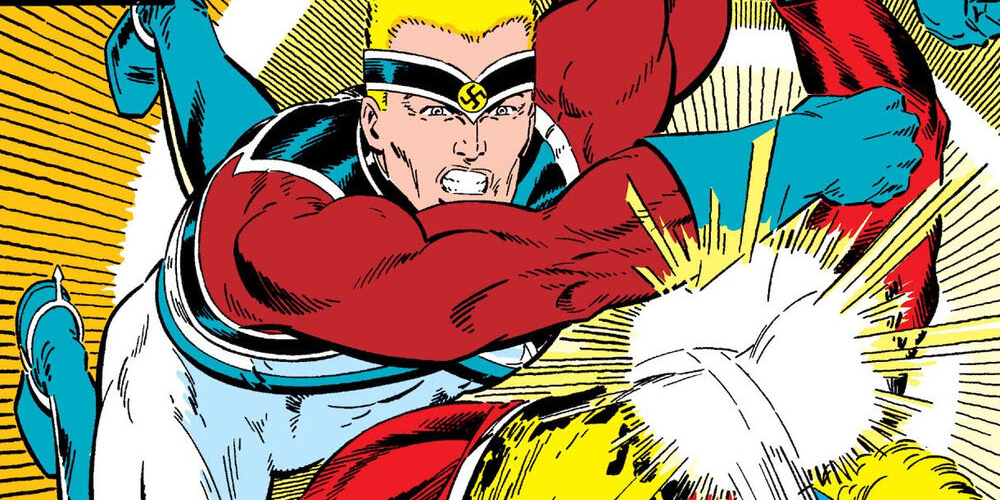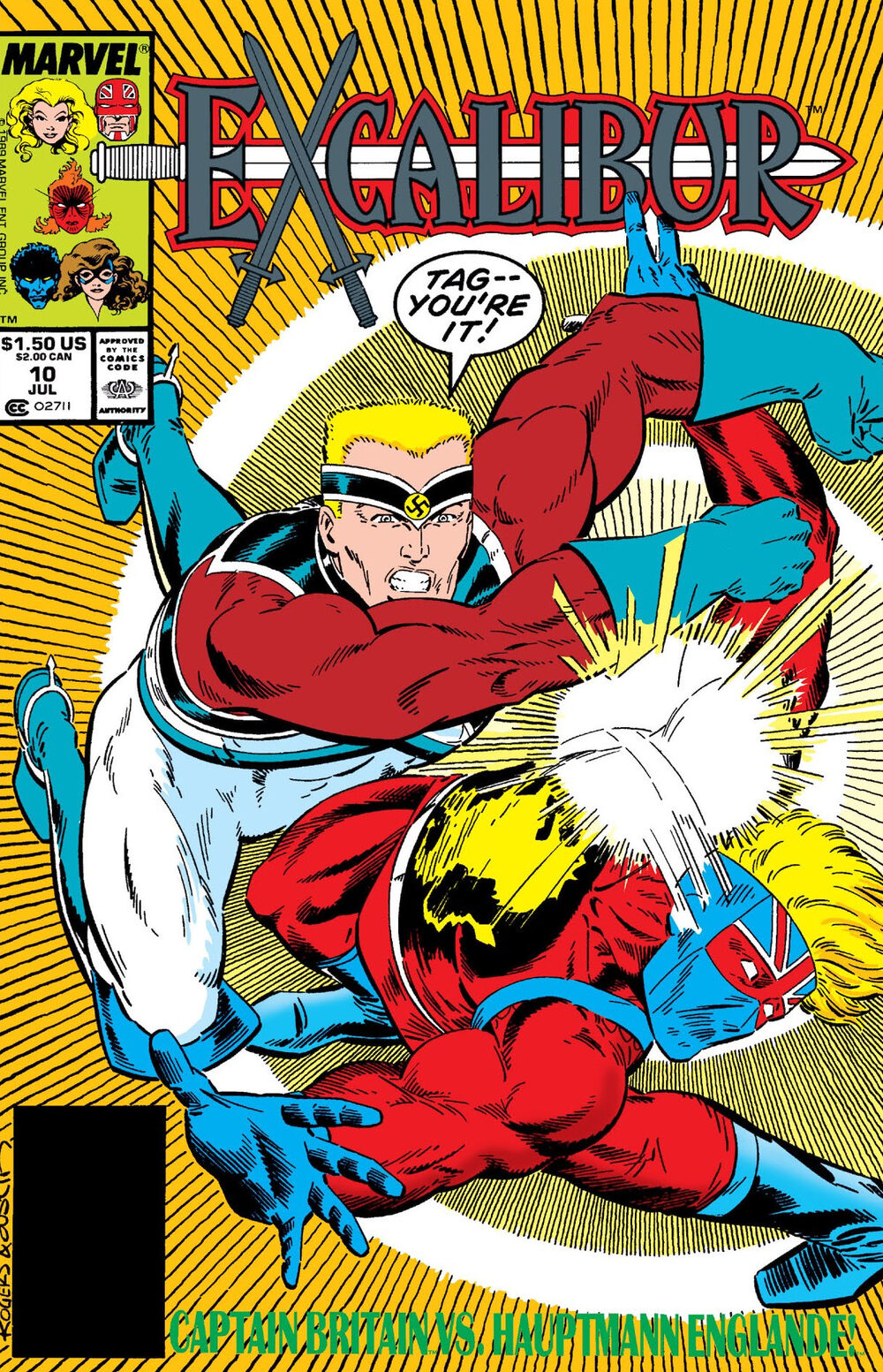Excalibur #10
“Widget”
Writer: Chris Claremont
Pencils: Marshall Rogers
Inks: Terry Austin
Colours: Glynis Oliver
Letters: Michael Heisler and Agustin Mas
Editor: Terry Kavanagh
Original publication date: July 1989
In this episode, Anna, Mav, and Andrew team up with Dr. Travis Smith, author of Superhero Ethics, to discuss the ethically fraught Excalibur #10: “Widget,” in which Brian spends way too many pages punching his Nazi counterpart, while Kitty finds a new (inappropriate) crush and confronts a disturbing demon self. We do the most complaining we’ve ever done, but talk ourselves into talking about fight choreography, the dangers of compromise, the heartbreak of rushed fill-in art, and what a responsible Nazi doppelganger story might look like (spoiler: not like this).
This episode has an enhanced video version! Watch here:
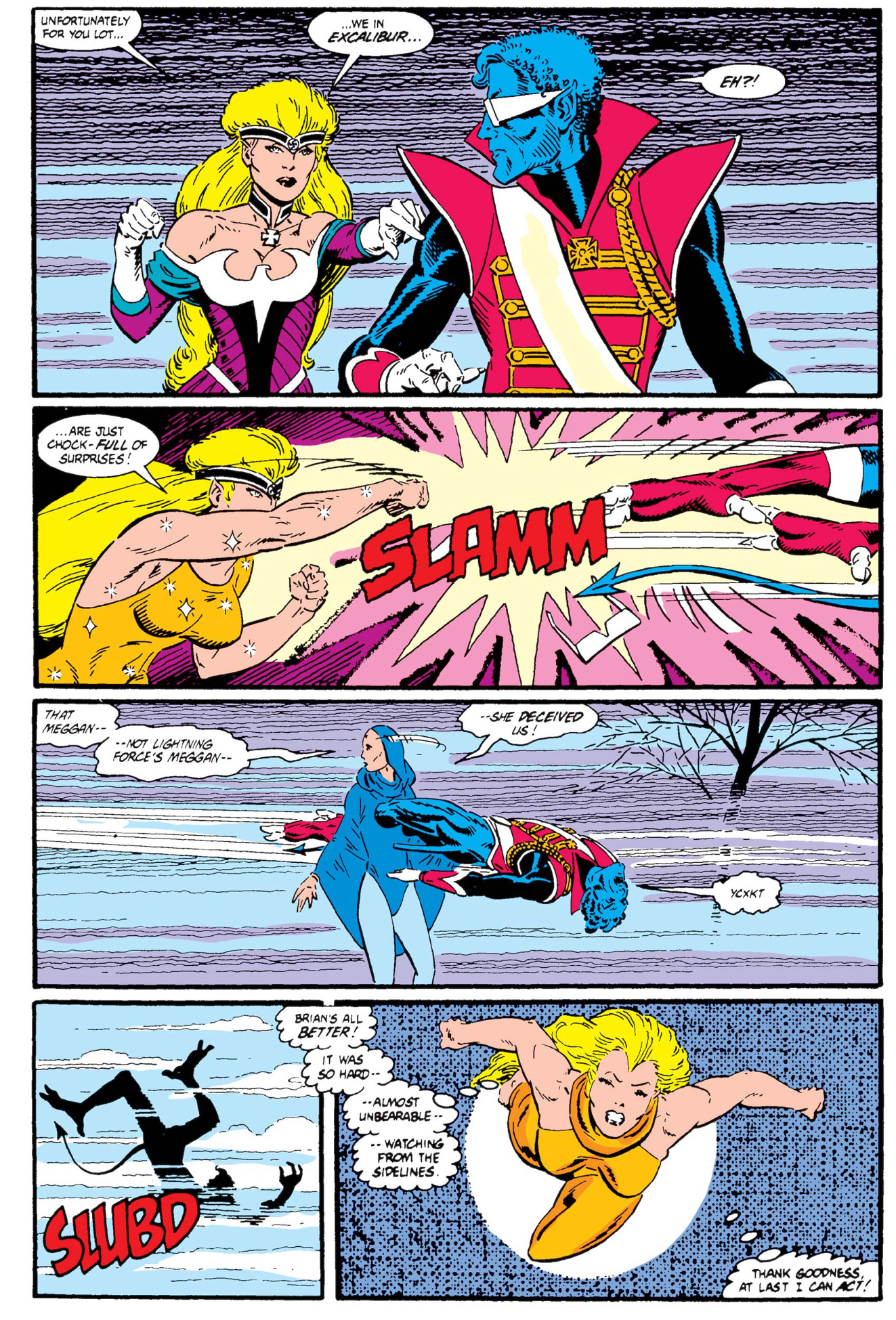
On Nazis and satire:
“This references the legacy of ‘silly Nazis,’ like those from Hogan’s Heroes, or Mel Brooks movies. Silly Nazis were part of the postwar coping mechanism, where some texts went deliberately light or satirical on very serious subjects.”-Travis
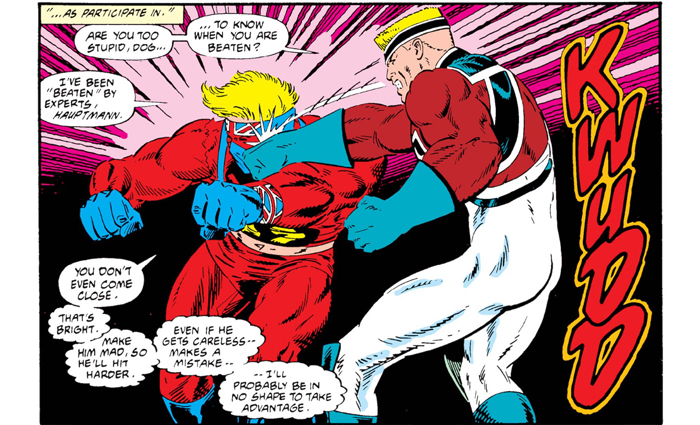
On reductive Nazi villains:
“Going to the Nazis is lazy storytelling in the sense that: Nazis are a stand-in for ‘the greatest evil.’ You don’t have to explain their motivation, you’re not meant to sympathize. As they say in professional wrestling—it’s ‘cheap heat.’”-Travis
“Of course I’m going to root for Brian in this fight against this freakin’ Nazi. It doesn’t mean Brian’s a good person.” -Anna
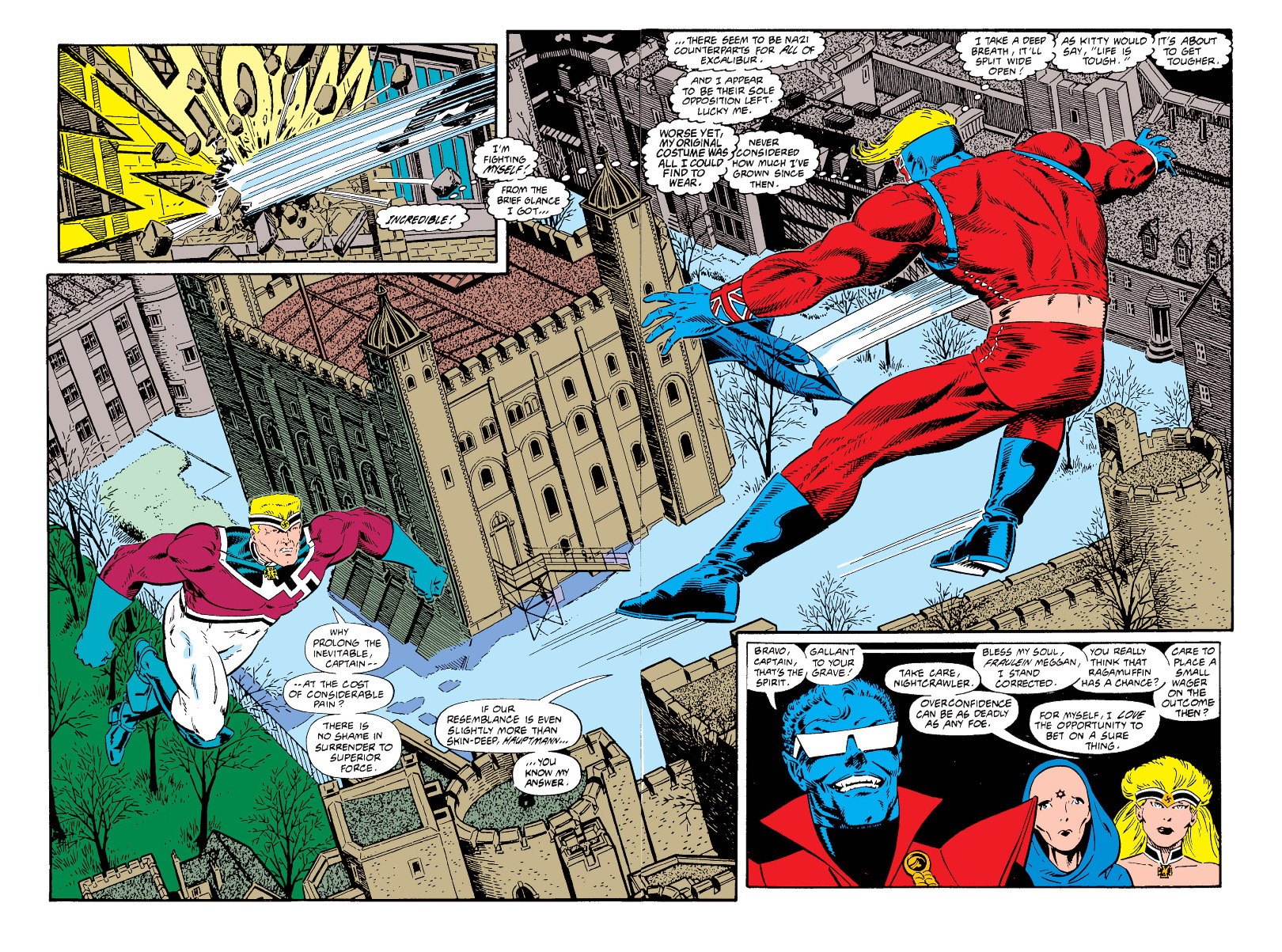
On the heartbreak of monthly comics publishing:
Mav: “Marshall Rogers was trained in architecture and mechanical design. Elsewhere, he had a deceptively intricate style that set him apart. He’d spent a year at this point drawing Kirby-tech. For me, he’s the definitive Silver Surfer artist. But this sucks.”-Mav
Andrew: “There was clearly something going on behind the scenes. This is ‘panic button’ penciling.”
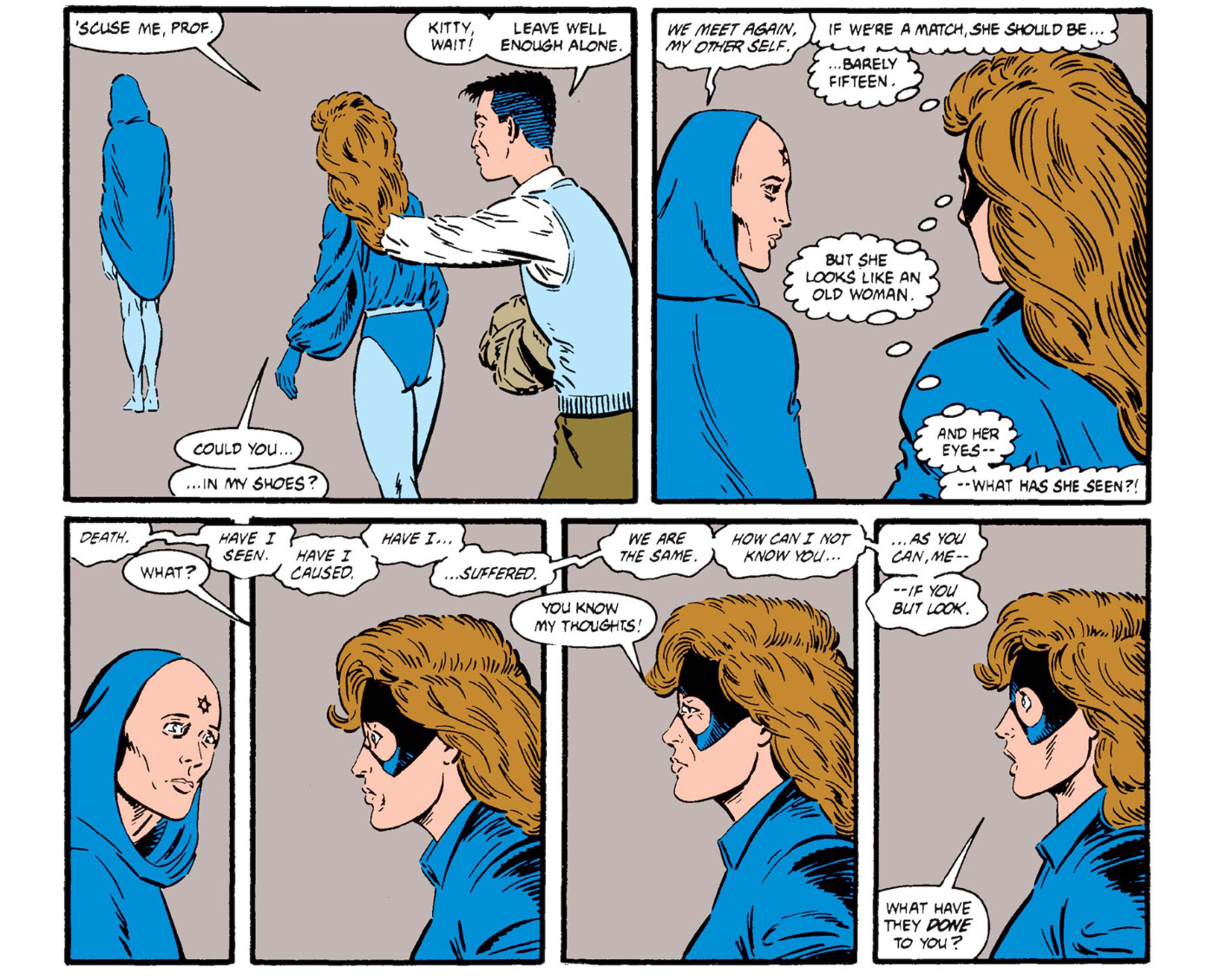
On tonal inconsistency:
“The representation of evil Kitty is a dark and potentially interesting story that has no place in this funnybook. This isn’t that story. Instead we have dinosaur people running around.”-Mav
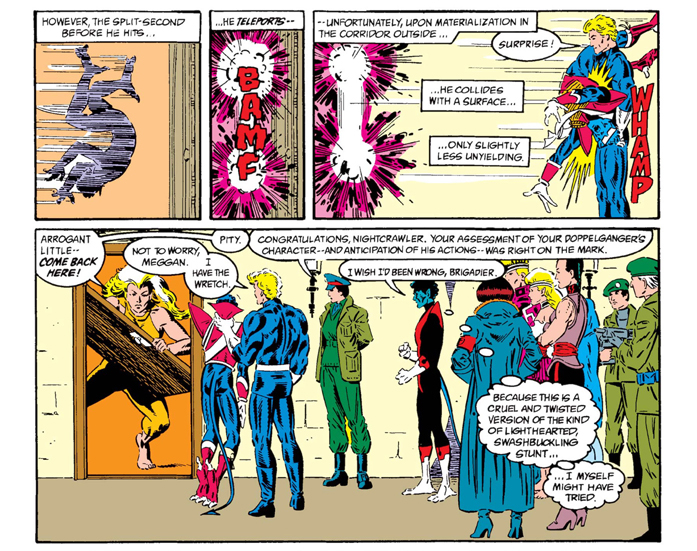
On critical counterparts:
“With doppelgangers, I always ask myself if the alternate universe version we’re presented with somehow compatible or consistent with the ethical core of that character. If it diverges too strongly, they’re not really recognizable, or properly critical.”-Travis
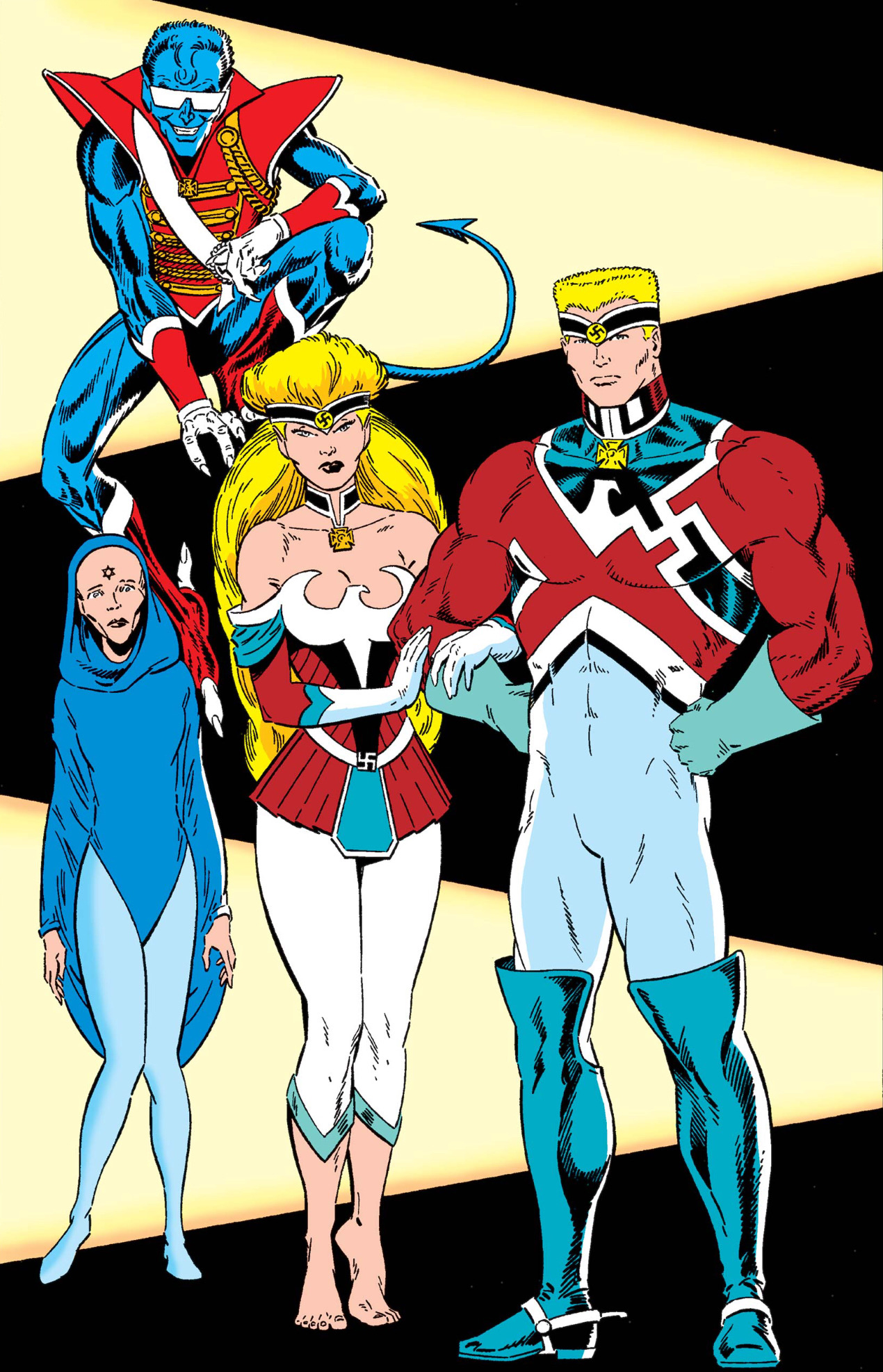
On real-world parallels:
“Totalitarian governments love to get their hands into smart and spirted people. They grab those people, put them to work, and make them heroes.”-Travis
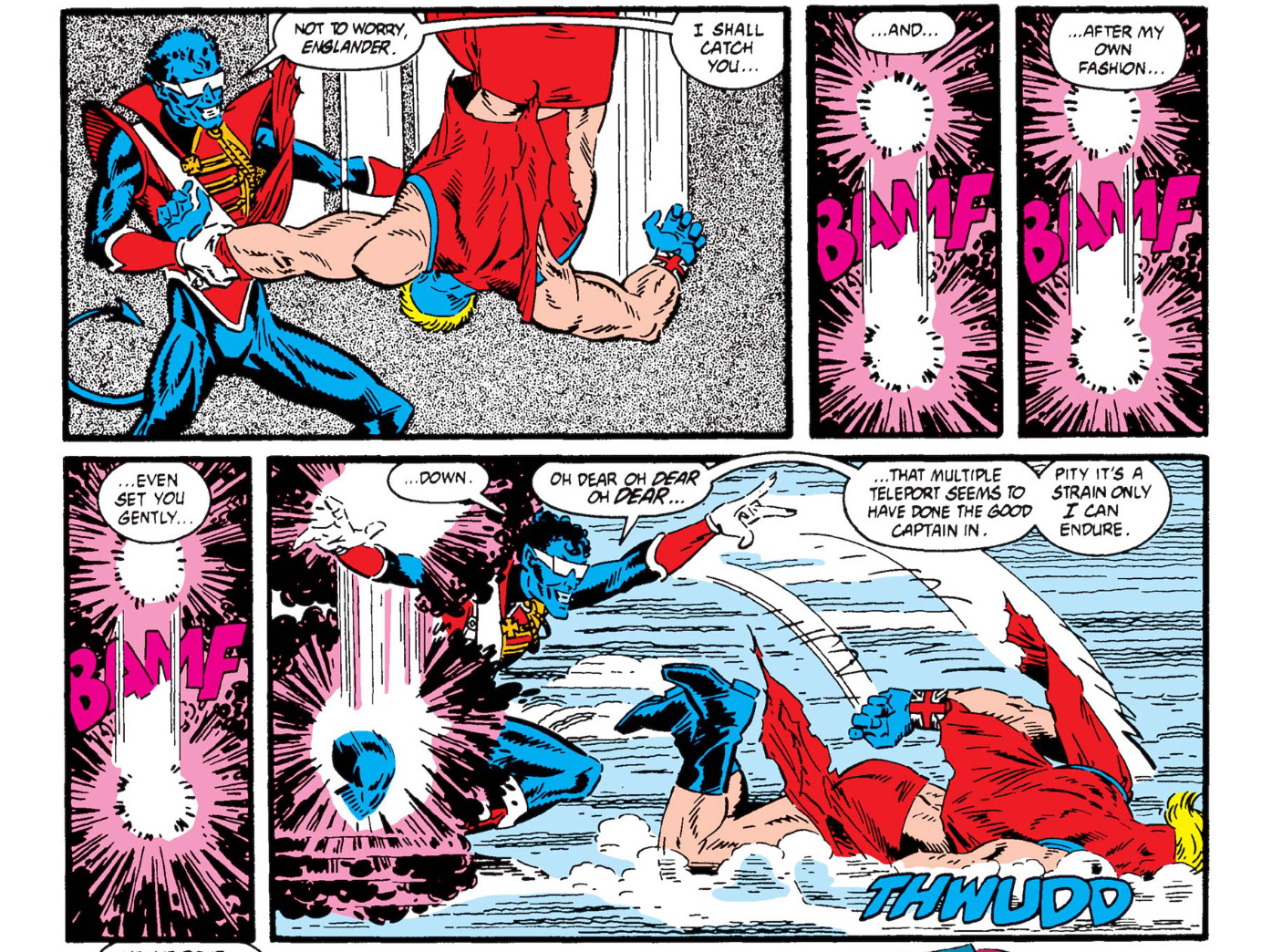
On fights as narratives:
“When designing fight choreography in a superhero comic, you have to reckon with the conceit of superpowers. Superpowers are magic. They make no sense. Yet you have to fold an internal logic of superpowers into a story in order for readers to buy the consequence of the fight.”-Anna
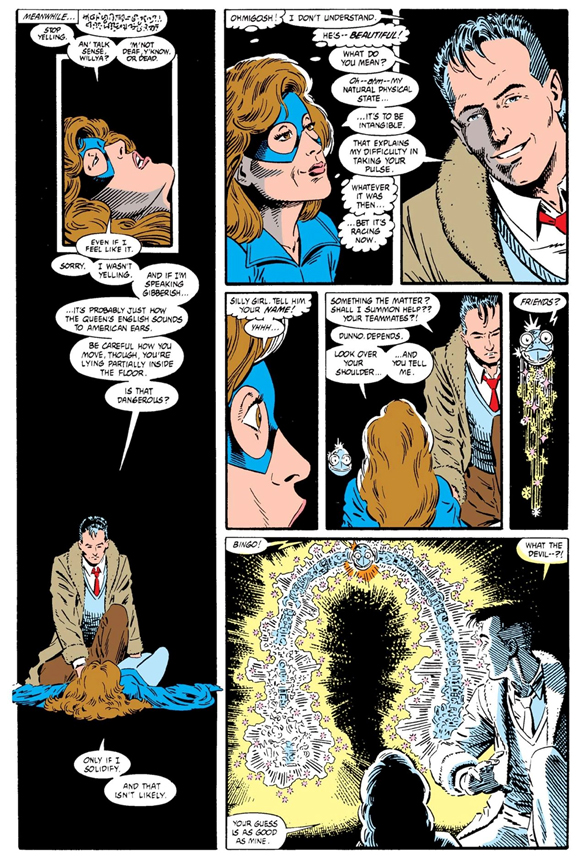
On new love triangles:
“I like the idea of Kitty forming a crush on someone who’s not going to be with her, ever. It’s nice to see her forming inappropriate crushes that don’t turn into problematic relationships.”-Andrew
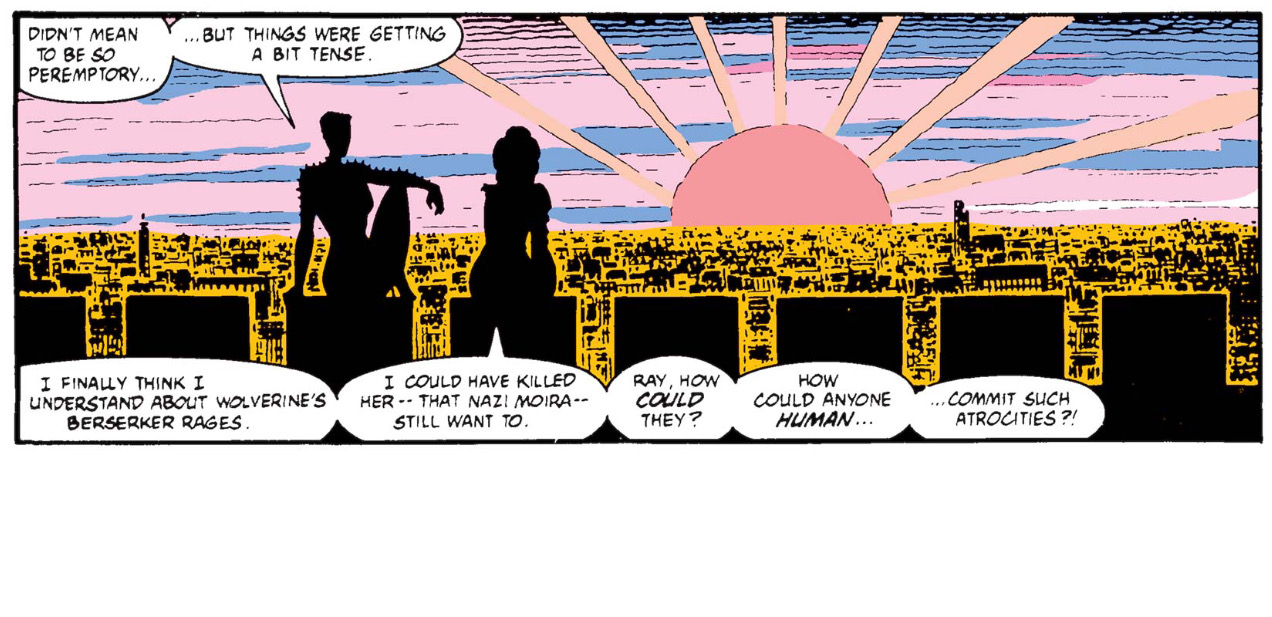
On ethically fraught conclusions:
“In the end, the heroes compromise. But compromise is exactly how you get Nazi Excalibur in the first place.”-Andrew
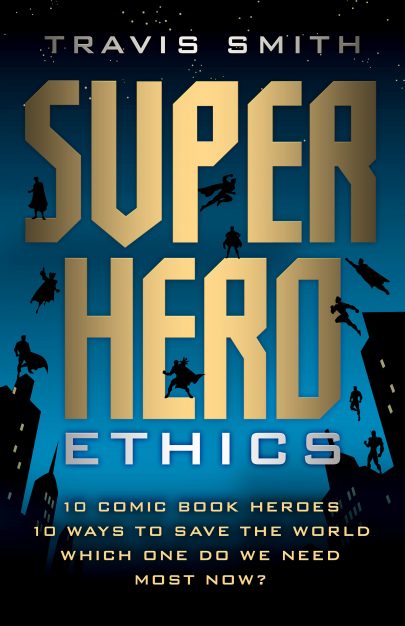
Want more?
You can find Travis’s book, Superhero Ethics: 10 Comic Book Heroes; 10 Ways to Save the World; Which One Do We Need Most Now?, here or wherever books are sold!
From the publisher’s website:
Whether in comic books or on movie screens, superhero stories are where many people first encounter questions about how they should conduct their lives.
Although these outlandish figures—in their capes, masks, and tights, with their unbelievable origins and preternatural powers—are often dismissed as juvenile amusements, they really are profound metaphors for different approaches to shaping one’s character and facing the challenges of life.
But, given the choice, which superhero should we follow today? Who is most worthy of our admiration? Whose goals are most noble? Whose ethics should we strive to emulate?
To decide, Travis Smith takes ten top superheroes and pits them one against another, chapter by chapter. The hero who better exemplifies how we ought to live advances to the final round. By the end of the book, a single superhero emerges victorious and is crowned most exemplary for our times.
Using superheroes to bring into focus these timeless themes of the human condition, Smith takes us on an adventure as fantastic as any you’ll find on a splash page or the silver screen—an intellectual adventure filled with surprising insights, unexpected twists and turns, and a daring climax you’ll be thinking about long after it’s over.
And as usual:
You can find Anna on Twitter (@peppard_anna) and on her podcast with Andrew and Michael Hancock, Three Panel Contrast (@3PanelContrast).
You can find Andrew on Twitter (@ClaremontRun).
You can find Mav on Twitter (@chrismaverick) and on his podcast, VoxPopcast (@VoxPopcast).
Enjoy!
-GGW Team

